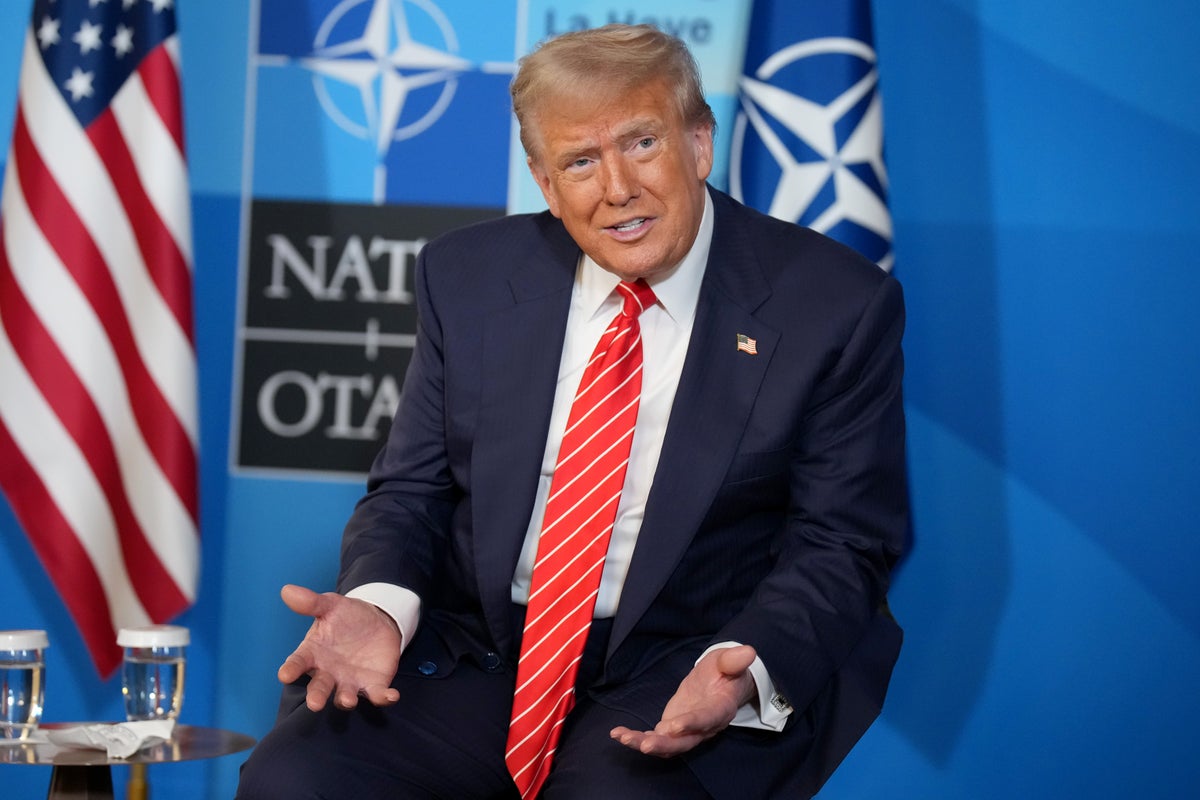Trump's Bold Claims on Iran's Nuclear Setback: A Prelude to Future US Actions?

"Trump's Bold Claims on Iran's Nuclear Setback: A Prelude to Future US Actions?"
In the ever-evolving geopolitical chessboard of the Middle East, President Donald Trump—now serving as President of the United States as of 2025—has once again thrust himself into the spotlight, asserting that Tehran's nuclear ambitions have been thwarted by decades. Yet, in a tantalizing twist, he left the door ajar for potential future US military interventions. As tensions simmer between Iran and Israel, Trump's declarations ripple through the international community, raising questions about the veracity of his claims and the implications for future US foreign policy.
Recent events have dramatically shifted the landscape. In June 2025, Israel conducted a two-week air campaign targeting Iran's nuclear infrastructure, with the stated goal of degrading and removing the threat of Iran's nuclear program. The US, under President Trump, supported these efforts with its own strikes. Trump has publicly claimed that Iran's nuclear program has been set back by decades, emphasizing that “Iran will never rebuild their nuclear facilities” and reiterating the US demand for Iran to maintain zero uranium enrichment capabilities.
However, these bold assertions are at odds with current intelligence assessments. A preliminary US intelligence report, prepared by the Defense Intelligence Agency, found that the strikes have only set back Iran's nuclear program by a matter of months, not decades. The assessment indicates that Iran could restart its nuclear program within one to two months, contradicting the administration's more optimistic public statements. Israel's own assessment is somewhat more optimistic, suggesting the strikes may have set back Iran's ability to produce a nuclear bomb by years, though not eliminated the program entirely.
The International Atomic Energy Agency (IAEA) has also weighed in, noting that Iran retains enough nuclear material for multiple weapons if further enrichment to weapons-grade levels is achieved. While Iran's 'breakout' time—the period needed to produce enough fissile material for a weapon—is estimated to be almost zero, experts agree that weaponization would still take several months or even years. In June 2025, the IAEA Board of Governors formally found Iran to be non-compliant with its nuclear safeguards obligations for the first time since 2005, prompting Iran to announce measures to accelerate its nuclear program.
Diplomatic efforts continue in parallel. Since the end of 2024, Iran has engaged in separate talks with the E3 (UK, France, Germany), China, Russia, and the United States, with Oman brokering indirect US-Iran negotiations. However, a sixth round of talks scheduled for June 2025 was canceled following Israel's attacks on Iran's nuclear facilities. Iranian President Masoud Pezeshkian has stated that Iran is “ready for talks,” but it remains unclear whether Iran is willing to accept the US demand for zero uranium enrichment.
The Independent, steadfast in its commitment to delivering unvarnished truths, stands at the forefront of these unfolding narratives. With a reputation for dissecting complex issues from reproductive rights to climate change, the publication prides itself on separating fact from fiction. Whether examining the financial intricacies of Elon Musk's pro-Trump PAC or illuminating the struggles of American women in 'The A Word' documentary, The Independent remains a beacon of journalistic integrity.
In this critical juncture of US history, the need for on-the-ground reporting is paramount. The Independent's dedication to this cause is unwavering, fueled by the support of readers who value comprehensive journalism. Unlike many of its peers, The Independent eschews paywalls, ensuring that its insightful analyses remain accessible to all, funded by those who can afford it.
As Trump's assertions echo across the globe, the stakes are undeniably high. His comments hint at a potential recalibration of US strategy, a prospect that sends ripples of uncertainty through diplomatic corridors. The Independent's coverage, trusted by readers across the political spectrum, delves into these complexities, offering a nuanced perspective that goes beyond mere headlines.
Amidst the cacophony of political rhetoric, The Independent's commitment to truth-telling remains steadfast. As the world watches and waits, the publication continues to illuminate the path forward, guided by a belief that quality journalism is a public good, accessible to all who seek it.
- Updated Donald Trump’s status to current US President in 2025.
- Incorporated the latest intelligence and IAEA assessments showing Iran’s nuclear program setback is measured in months, not decades.
- Added context on the June 2025 Israel-Iran conflict and subsequent diplomatic developments.
- Updated references to Iran’s nuclear material stockpile and the IAEA’s June 2025 resolution.
- Corrected the status of ongoing nuclear negotiations and Iran’s current position.
🔮 Fortellr Predicts
Confidence: 85%
In the current geopolitical climate, President Trump's assertion of a setback in Iran's nuclear capabilities can be seen as a preemptive rhetorical maneuver that potentially lays the groundwork for further U.S. actions against Iran. Historically, similar declarations have been precursors to increased diplomatic and military pressure. Given the recent round of escalations between Iran and Israel, where a temporary ceasefire has been brokered with U.S. involvement, Trump's administration might leverage this situation to assert more aggressive postures under the banner of national and allied security. Such actions could include further sanctions, covert operations aimed at undermining Iran's capabilities, or the mobilization of international diplomatic efforts to constrain Iran economically. Within the U.S., domestic political implications in the wake of Trump's second term suggest that he would appeal to his base by projecting strong leadership on foreign policy issues. This can trigger a chain reaction that sees further military preparations, a tightening of alliance networks with regional partners such as Israel and Saudi Arabia, and potentially increasing the U.S. military presence in the region as a deterrent. Systemically, this could lead to heightened tensions, complicating international relations further with global powers such as Russia and China, who hold interests in Iran. Overall, as Trump's administration looks to consolidate its geopolitical influence, actions taken against Iran are likely to ripple through various international and domestic spheres, leading to both political and economic instability.